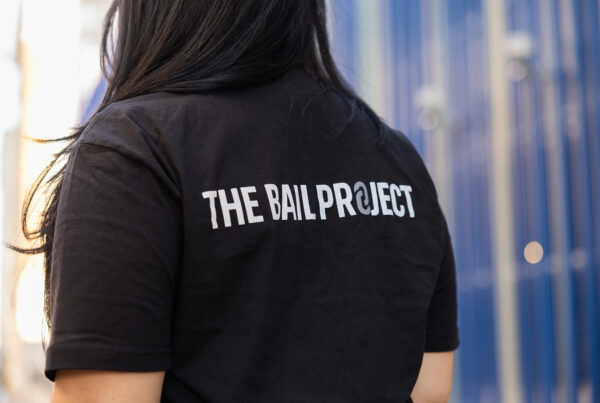Press Contact: Jeremy Cherson, Director of Communications
FOR IMMEDIATE RELEASE:
(AUSTIN, TX) – Yesterday, Texas voters approved Proposition 3, which broadens judicial power to deny bail for people facing certain violent or sexual offenses, and, for the first time in the nation, enshrines key due process protections into a state constitution for people awaiting trial. The amendment requires high evidentiary standards, written findings, and the right to counsel at hearings where pretrial liberty is at stake.
“Pretrial freedom is a cornerstone of justice, and Texans have stood up for it. When freedom is at stake, due process must be more than a promise – it must be a guarantee,” said Nicole Zayas Manzano, Deputy Director of Policy at The Bail Project. “The work now shifts to every courtroom: judges, prosecutors, and defense counsel must apply these protections rigorously and consistently so that freedom – not incarceration – remains the default before trial.”
Before reaching voters as Proposition 3, the measure advanced through the legislature as Senate Joint Resolution 5 – an amendment that, in its original form, failed to guarantee core legal protections. Through negotiations and sustained pressure from constituents and advocates who contacted their representatives, testified before committees, and spoke out for fairness, lawmakers amended the proposal to embed landmark safeguards: a guaranteed right to counsel at detention hearings; a requirement that judges meet a high bar of evidence to justify jailing someone pretrial, and a requirement to consider reasonable conditions of release before resorting to detention – due process that should ultimately be extended to all.
Texas county jails detain more than 53,000 people on any given day who have not been found guilty of a crime, representing more than 70% of the overall jail population. These individuals are legally innocent, waiting for trial behind bars at a cost to Texas taxpayers of about $1.2 billion annually. The vast majority remain in jail simply because they cannot afford bail. This reality underscores the need to apply Proposition 3’s due process guardrails with care, so as not to increase unnecessary detention in an already overburdened system.
The Bail Project calls on judges, prosecutors, and defense attorneys to uphold these rights robustly – issuing clear written findings, ensuring representation, and exhausting pretrial release options whenever possible to reasonably assure appearance and community safety.
Thank you for your valuable attention. The urgency and complication of the cash bail crisis requires meaningful participation to create real change – change that is only achieved through the support of readers like you. Please consider sharing this piece with your networks and donating what you can today to sustain our vital work.












